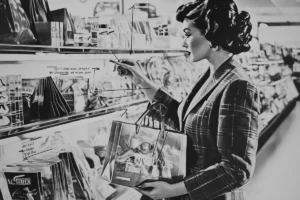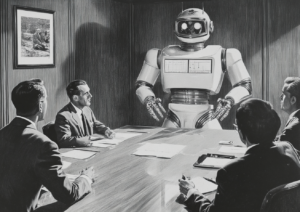Wow, that was a disgusting call. Talk about undisguised ageism.
A warm conversation quickly turned into a hideous discussion about how I was too old to understand TikTok; hold on to your Almond Decaf! Rant time.
I have always tried to be on the edge of emerging martech; that is how I was led down the digital garden path. I started using Google Ads as soon as it was launched, and the same with most digital channels, including TikTok. I even made Facebook work as a marketing platform before it was allowed.
The new generation of digital marketers is blessed with AI-driven optimisation and content management systems and has avoided the suffering of Dreamweaver, Flash and (shudder) Cold Fusion. Oh, you want to sell something online? Let’s build a bespoke solution from the ground up. It wasn’t until about 20 years ago that reusable solutions (SAAS wasn’t even a concept) became commonplace. No kindergarden WYSIWYG page editors.
I love being hands-on and take to most tech like a kid to a new shiny toy. Yes, they are fun for a while but like most toys, they are eventually discarded. Everyone loves a new fad! Remember Google+? More recent systems will replace TikTok and other social platforms, and I’ll be there waiting. I’ll skip Truth Social.
The article Age and Digital Marketing: A Study of Older Workers in a New Industry (O’Brien et al.2019:1294-1322) examines how ageism operates in this industry. The ethnographic study of older workers in the digital marketing industry in the United Kingdom found that older workers in digital marketing are subject to ageist stereotypes and assumptions and may experience discrimination in hiring and promotion processes. The study also identifies some strategies older workers use to resist ageism and negotiate their position in the industry. The article recommends several strategies for addressing ageism in digital marketing. This could include a multi-pronged approach involving education, policy change, and collaboration among employers, industry associations, and workers.
Great marketers, designers, writers, coders, or PPC specialists improve with age. Experience gives you a broader awareness of what it is to be human in a digital world. With life experiences, you become more (in most cases) empathetic. When I was younger, I had an undulated arrogance that digital bullshit personas could define people. There you go, Fred; you are male, 25, hungry, and like football; therefore, you will love Guzman y Gomez. Let me through this ad at you ten times today. Today I understand humans as fuzzy creatures with many pressures and influences. Digital marketing requires a holistic approach that interweaves with consumers’ daily lives.
So on being too old for TikTok, OK, I’m only a moderate user of TikTok. I get bored with it quickly. Plus, no one wants to see me do some weird dance. Security concerns and much content are of little interest, but that is changing. However, I appreciate the platform’s entertaining nature and how annoying marketing can be on the platform. Marketers and content makers are starting to understand that broader audiences are at play. Facebook and Instagram have experienced shifting demographics over time. As my kids say, Facebook is for older people. In many cases, they are right! BTW, I’m a huge YouTube user.
As an older practitioner in the industry, I have much to give, from a fundamental understanding of tech and marketing to life experience. I loved teaching at General Assembly and hope to teach more in the future. But I’m done with the ageism, and as my recruiter friend just found out, I will point it out in not-so-subtle ways.
O’Brien D, Mac an Ghaill M, & Haywood C (2019) ‘Age and digital marketing: A study of older workers in a new industry’. Human Relations, 72(8):1294-1322.




